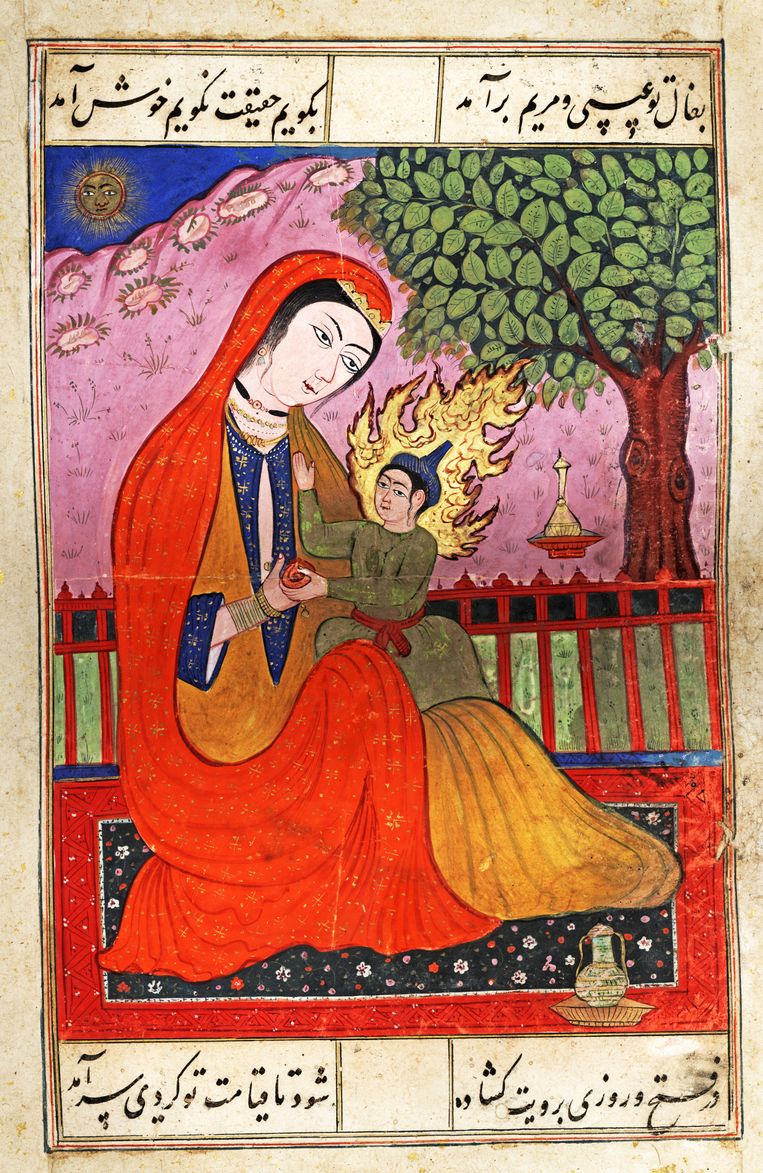The past month or so I have been doing a deep dive into the Quran and really enjoy comparing the aspects of various figures in there with their Christian / Jewish counterparts, particularly that of Jesus / Isa. I had a previous blog post (link HERE) that mentions the crucifixion body swap that appears in the Quran but originally sourced from various gnostic tales. This time I want to highlight the infant Jesus speaking, straight out of the womb! In the Quran, Surah 19, titled Maryam (Mary), 30 – 33, we have the following:
Jesus declared, “I am truly a servant of Allah. He has destined me to be given the Scripture and to be a prophet.
He has made me a blessing wherever I go, and bid me to establish prayer and give alms-tax as long as I live,
and to be kind to my mother. He has not made me arrogant or defiant.
Peace be upon me the day I was born, the day I die, and the day I will be raised back to life!”
19:36 has one more saying and that is:
˹Jesus also declared,˺ “Surely Allah is my Lord and your Lord, so worship Him ˹alone˺. This is the Straight Path.”
So his first words are proclaiming himself a servant of God and and then he goes on to defend his mother. How honorable. As I read this, I recalled Jesus speaking in another early Christian non-canonical text, that being the Arabic Gospel of the Infancy of Our Savior. For some odd reason, this particular text doesn’t get the attention like the other infancy gospels. So what does the infant Jesus say in this writing? Right off the bat, in the first section, Jesus says the following:
1. We find (1) what follows in the book of Joseph the high priest, who lived in the time of Christ. Some say that he is Caiaphas. (2) He has said that Jesus spoke, and, indeed, when He was lying in His cradle said to Mary His mother: I am Jesus, the Son of God, the Logos, whom thou hast brought forth, as the Angel Gabriel announced to thee; and my Father has sent me for the salvation of the world.
He is announcing who he is in this gospel but no mention of defending his mother. However, there is no context in the text leading up to that which accuses Mary of wrong doing, hence no need for that.
Since we are doing Quran / Gnostic comparisons, lets go ahead and do another one. In the Quran, Surah Al-Ma’idah 5:110, we have the following:
[The Day] when Allāh will say, "O Jesus, Son of Mary, remember My favor upon you and upon your mother when I supported you with the Pure Spirit [i.e., the angel Gabriel] and you spoke to the people in the cradle and in maturity; and [remember] when I taught you writing and wisdom and the Torah and the Gospel; and when you designed from clay [what was] like the form of a bird with My permission, then you breathed into it, and it became a bird with My permission; and you healed the blind [from birth] and the leper with My permission; and when you brought forth the dead with My permission; and when I restrained the Children of Israel from [killing] you when you came to them with clear proofs and those who disbelieved among them said, "This is not but obvious magic."
“When you designed from clay what was like the form of a bird with my permission, then you breathed into it, and it became a bird with my permission.” That incident sounds very familiar. In the Infancy Gospel of Thomas, which is perhaps one of the most popular apocrypha tales out there, this incident is also played out.
1 This little child Jesus when he was five years old was playing at the ford of a brook: and he gathered together the waters that flowed there into pools, and made them straightway clean, and commanded them by his word alone. 2 And having made soft clay, he fashioned thereof twelve sparrows. And it was the Sabbath when he did these things (or made them). And there were also many other little children playing with him. 3 And a certain Jew when he saw what Jesus did, playing upon the Sabbath day, departed straightway and told his father Joseph: Lo, thy child is at the brook, and he hath taken clay and fashioned twelve little birds, and hath polluted the Sabbath day.
Now it doesn’t surprise me that these elements made their way into the Quran. Muhammad was exposed to Christianity during his life and that wasn’t particularly the Christianity that was of an Orthodox nature, so these stories were still being accepted. In a way, it makes Isa more closer to the gnostic Jesus. I like it!
Featured artwork: Persian artwork of Mary and Jesus, circa 1550-1660
Arabic Gospel of the Infancy of Our Savior: http://gnosis.org/library/infarab.htm
Infancy Gospel of Thomas: http://gnosis.org/library/inftoma.htm
bP
